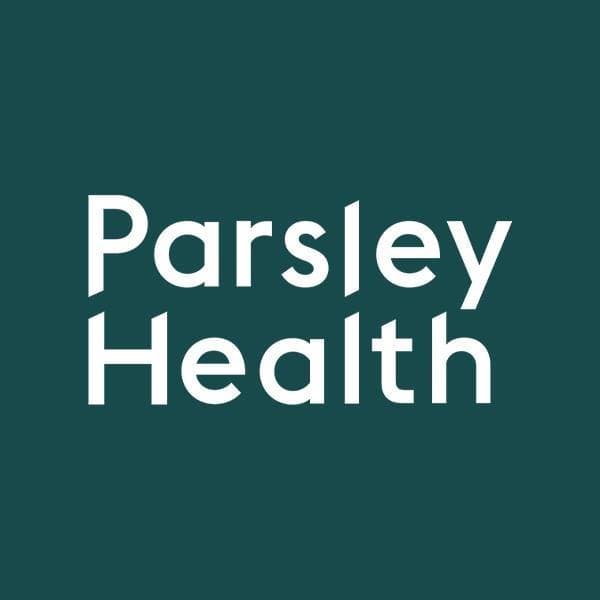Antioxidants are substances that can prevent or slow damage to cells caused by free radicals. These free radicals are unstable molecules that the body produces as a reaction to environmental and other pressures. Antioxidants are found in many foods, including fruits and vegetables. They are also available as dietary supplements. Scientists have been studying antioxidants for decades to understand their role in preventing diseases such as cancer, heart disease, and diabetes.
Key Takeaways
- Antioxidants help protect cells from damage caused by free radicals.
- Eating a diet rich in fruits and vegetables can provide a good source of antioxidants.
- Research suggests that antioxidants may lower the risk of some chronic diseases like cancer and heart disease.
- It's important to consume antioxidants through a balanced diet rather than relying solely on supplements.
- Different antioxidants work together to protect the body, making a varied diet essential.
Understanding Antioxidants
Definition and Types
Antioxidants are substances that help protect our cells from damage caused by free radicals. Free radicals are unstable molecules that can harm cells, leading to various diseases. There are several types of antioxidants, including vitamins like Vitamin C and E, minerals like selenium, and various phytochemicals found in plants.
Sources of Antioxidants
Antioxidants can be found in a variety of foods. Common sources include:
- Fruits such as berries, oranges, and grapes
- Vegetables like spinach, kale, and broccoli
- Nuts and seeds
- Whole grains
- Green tea and other herbal teas
Mechanism of Action
Antioxidants work by neutralizing free radicals, preventing them from causing cellular damage. They donate an electron to the free radicals, making them stable and less reactive. This process helps in reducing the risk of chronic diseases such as heart disease, cancer, and diabetes.
Understanding how antioxidants work can help us make better dietary choices to protect our health.
Antioxidants and Cancer Prevention
Role in Reducing Cancer Risk
Antioxidants are compounds that can neutralize harmful molecules called free radicals. Free radicals can damage cells and lead to cancer. By neutralizing these molecules, antioxidants help protect cells from damage. This protection can reduce the risk of cancer.
Key Studies and Findings
Several studies have looked at the link between antioxidants and cancer prevention. Some studies show that a diet high in antioxidants can lower the risk of certain cancers. However, other studies have not found a clear link. More research is needed to understand how antioxidants affect cancer risk.
Dietary Sources for Cancer Prevention
Eating a diet rich in fruits and vegetables can provide a good amount of antioxidants. Some foods high in antioxidants include:
- Berries (strawberries, blueberries, raspberries)
- Nuts (walnuts, almonds)
- Dark leafy greens (spinach, kale)
- Whole grains (brown rice, oats)
Including these foods in your diet can help you get the antioxidants you need to protect your cells from damage.
Impact of Antioxidants on Cardiovascular Health
Antioxidants and Heart Disease
Antioxidants have gained attention for their potential role in heart health. They help combat oxidative stress, which is linked to heart disease. Oxidative stress can damage cells and lead to atherosclerosis, a condition where arteries become clogged. Eating antioxidant-rich foods like fruits and vegetables may lower the risk of heart disease.
Research on Antioxidants and Atherosclerosis
Studies have shown mixed results regarding antioxidants and atherosclerosis. Some research suggests that antioxidants can slow the progression of this condition, while other studies find no significant benefit. It's important to consider the type and amount of antioxidants consumed.
Dietary Recommendations
To support heart health, include a variety of antioxidant-rich foods in your diet. Here are some recommendations:
- Eat a colorful array of fruits and vegetables daily.
- Include nuts and seeds, which are good sources of vitamin E.
- Consider green tea, which contains powerful antioxidants called catechins.
A balanced diet with diverse antioxidants is more beneficial than focusing on a single type.
Antioxidants in Managing Diabetes
Oxidative Stress in Diabetes
Diabetes is often linked with high levels of oxidative stress, which can damage cells and tissues. Oxidative stress happens when there's an imbalance between free radicals and antioxidants in the body. This imbalance can lead to complications like nerve damage, kidney disease, and heart problems.
Antioxidant-Rich Foods for Diabetes
Eating foods rich in antioxidants can help manage diabetes. Some of these foods include:
- Berries (like blueberries and strawberries)
- Nuts (such as almonds and walnuts)
- Dark leafy greens (like spinach and kale)
- Citrus fruits (such as oranges and lemons)
- Whole grains (like oats and brown rice)
Clinical Evidence and Studies
Research shows that antioxidants can help reduce oxidative stress in people with diabetes. Studies have found that antioxidants like vitamin C, vitamin E, and beta-carotene can improve blood sugar control and reduce the risk of complications. However, more research is needed to fully understand their benefits.
Including antioxidant-rich foods in your diet can be a simple and effective way to help manage diabetes and reduce the risk of complications.
Role of Antioxidants in Inflammatory Diseases
Mechanisms of Inflammation Reduction
Antioxidants help reduce inflammation by neutralizing free radicals, which are unstable molecules that can damage cells. By stabilizing these molecules, antioxidants prevent them from causing harm. This process helps lower inflammation in the body.
Key Antioxidants for Inflammatory Conditions
Several antioxidants are particularly effective in fighting inflammation, including:
- Vitamin E
- Vitamin C
- Beta-carotene
- Lipoic acid
Dietary Strategies
Incorporating antioxidant-rich foods into your diet can help manage inflammation. Some of these foods include:
- Fruits like berries and oranges
- Vegetables such as spinach and kale
- Nuts and seeds
- Green tea
Eating a balanced diet rich in antioxidants can be a natural way to reduce inflammation and improve overall health.
Potential Risks and Toxicity of Antioxidants
Understanding Antioxidant Toxicity
While antioxidants are generally considered safe, high doses can lead to toxicity. Excessive intake of certain antioxidants, like vitamin E, beta-carotene, and lipoic acid, can have harmful effects. For instance, high levels of vitamin A, C, and E might act as pro-oxidants, increasing the risk of heart attacks.
Safe Consumption Levels
To avoid toxicity, it's important to stick to recommended daily allowances (RDAs) for antioxidants. Here are some guidelines:
| Antioxidant | Recommended Daily Allowance (RDA) |
|---|---|
| Vitamin A | 700-900 mcg |
| Vitamin C | 75-90 mg |
| Vitamin E | 15 mg |
Guidelines for Supplement Use
When considering antioxidant supplements, follow these tips:
- Consult with a healthcare provider before starting any new supplement.
- Avoid taking multiple antioxidant supplements simultaneously.
- Stick to the recommended dosages on the supplement labels.
It's crucial to remember that more isn't always better. Overconsumption of antioxidants can lead to serious health issues.
Antioxidants in Vision and Eye Health
Role in Preventing Vision Loss
Antioxidants play a crucial role in maintaining eye health and preventing vision loss. They help protect the eyes from damage caused by free radicals, which can lead to conditions like age-related macular degeneration (AMD) and cataracts. By neutralizing these harmful molecules, antioxidants can slow down or even prevent the progression of these eye diseases.
Studies on Antioxidants and Eye Health
Numerous studies have shown the benefits of antioxidants for eye health. For instance, research has indicated that lutein and zeaxanthin, two powerful antioxidants, can improve visual function and reduce the risk of chronic eye diseases. A randomized controlled trial found that participants who took antioxidant supplements had better contrast sensitivity and overall eye health compared to those who did not.
Dietary Sources for Eye Protection
Incorporating antioxidant-rich foods into your diet is a natural way to support eye health. Some of the best dietary sources of antioxidants for eye protection include:
- Leafy green vegetables like spinach and kale
- Colorful fruits such as oranges, berries, and kiwi
- Nuts and seeds, including almonds and sunflower seeds
- Fish high in omega-3 fatty acids, like salmon and mackerel
Including a variety of these foods in your daily diet can help ensure you get the necessary antioxidants to protect your vision and maintain overall eye health.
Conclusion
In summary, antioxidants play a vital role in protecting our bodies from damage caused by free radicals. They help prevent a range of diseases, including cancer, heart disease, and diabetes. Eating a diet rich in fruits and vegetables, which are high in antioxidants, can significantly reduce the risk of these chronic conditions. While supplements can also provide antioxidants, it's best to get them from natural food sources. Understanding the importance of antioxidants and incorporating them into our daily diet can lead to better health and a longer life.
Frequently Asked Questions
What are antioxidants?
Antioxidants are substances that help protect our cells from damage caused by harmful molecules called free radicals.
How do antioxidants help in preventing cancer?
Antioxidants can neutralize free radicals, which may reduce the risk of cancer by preventing damage to cells.
Which foods are rich in antioxidants?
Foods like berries, nuts, dark chocolate, and green leafy vegetables are rich in antioxidants.
Can antioxidants improve heart health?
Yes, antioxidants can help reduce inflammation and plaque buildup in arteries, which is beneficial for heart health.
Are there any risks associated with taking antioxidant supplements?
Taking high doses of antioxidant supplements can be harmful. It's best to get antioxidants from a balanced diet.
Do antioxidants help with eye health?
Yes, antioxidants like vitamin C, vitamin E, and beta-carotene can help protect against vision loss and eye diseases.
























